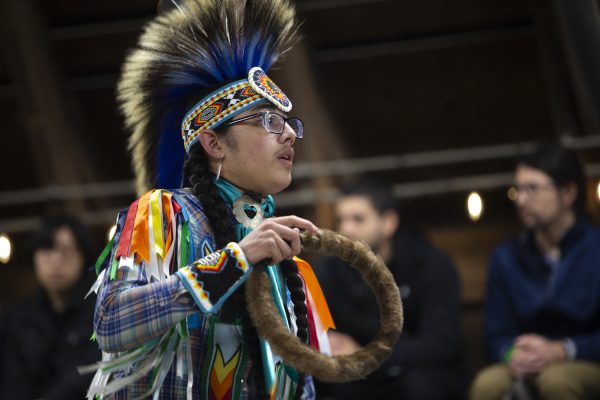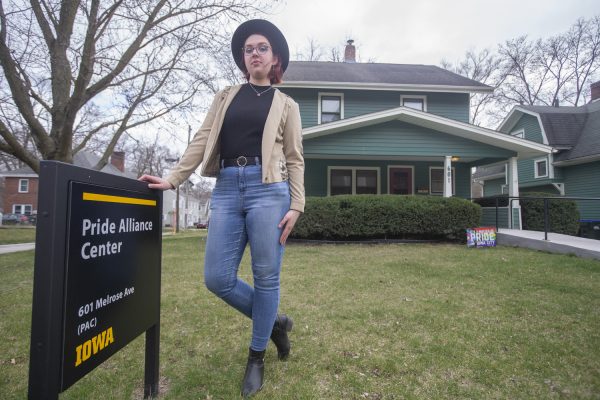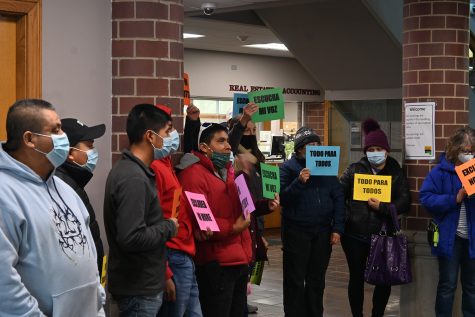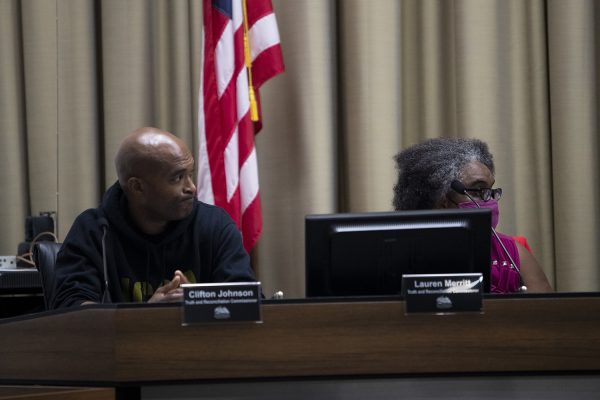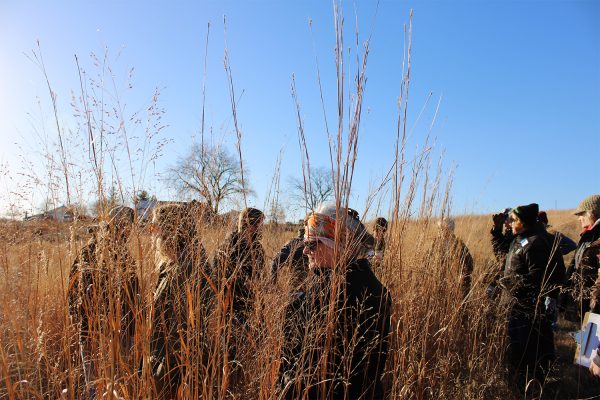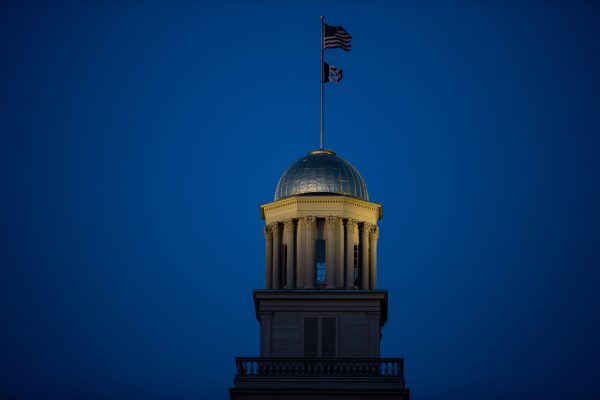Discriminatory housing practices, racial wealth gap continues to affect Black Iowans
Though redlining was made illegal by the 1968 Fair Housing Act, Black Iowans continue to feel the lingering effects of discriminatory housing practices.
A map of Iowa City is shown on Sunday, Feb. 27, 2022.
February 27, 2022
Discriminatory housing practices like redlining, zoning, and restrictive deed covenants have contributed to racial disparities in homeownership rates in Iowa City, continuing to this day.
Iowa had the fifth lowest Black homeownership rate among all states in 2019, at a rate of 23.4 percent, with a white homeownership rate of 74.2 percent.
Sara Barron, executive director of the Johnson County Affordable Housing Coalition, said the belief that Black neighborhoods are less desirable is still perpetuated in the community and across the country.
Redlining, the practice of limiting bank loans and other financial services based on the neighborhood where a person lives, was made illegal by the 1968 Fair Housing Act, though the term is often used as a catch-all for other forms of housing discrimination.
“At the core of it, redlining implies that neighborhoods where Black people live are less desirable and less valuable than neighborhoods that are filled with white residents,” Barron said.
Redlining in Iowa City
Colin Gordon, a professor of history at the University of Iowa, was the lead author on a project that mapped racially restrictive deed covenants used in the Iowa City area between 1921 and 1947.
RELATED: UI faculty and student-led project maps history of segregation in Johnson County
These deed covenants were formal agreements written into a subdivision or property sale that restricted sale to Black residents, Gordon said.
Gordon said restrictive deed covenants may not have had a major effect on Black residents of Iowa City at the time, as they were put into place in multiple subdivisions such as Cottage Reserve and University Heights, when Iowa City only had about 100 people.
“It wasn’t nearly as impactful as the segregation practice by the university itself, which until the late 1940s wouldn’t allow African Americans to live in the dorms,” Gordon said.
Until the late 40s, Black Americans could simply be excluded from deeds, Gordon said, but when this was made unenforceable by the 1948 Shelley v. Kraemer Supreme Court case, municipalities instead engaged in other discriminatory practices.
“There’s a longstanding motive to segregate the population by race and income and, depending on what’s sort of common practice or legal practice at the time, this takes all sorts of different forms,” Gordon said.
Anne Russett, City of Iowa City senior planner, said about 80 percent of residential land in Iowa City is allotted for single-family zoning. Generally, that means only houses built for one family can be built in those neighborhoods. Some flexibility exists in the code, allowing for duplexes in higher-density single-family zones, according to the Iowa City City Code.
Russett said widespread single-family zoning doesn’t allow for a diversity of housing choices, including cheaper options, for individuals and families.
To remedy this, the City of Iowa City adopted a new code at the end of 2021 for an undeveloped area of Iowa City’s South District, which has a higher proportion of Black residents than the rest of the city, that will require a variety of housing types.
“The goal here is to increase housing choice, have smaller units that hopefully are more affordable and also will aim to create more connected communities and hopefully in the future, as this area builds out, it will be easily accessible by transit,” Russett said.
Barron described other Iowa City programs designed to increase homeownership, such as the South District Program, which uses government funds to buy duplex units in the south district of Iowa City and rehabilitate them.
“In most cases, someone who participates in that program and buys the home through that program pays less for their mortgage than they would to rent the same home, which is a targeted way to take an area that’s been impacted by discrimination over the years and try to right that wrong,” Barron said.
Financial roadblocks
“When qualifying for a mortgage, we continue to use a household credit score to determine whether or not they’re eligible for a mortgage, and the ways that credit scores are determined often disadvantage people who come from generational poverty,” Barron said.
RELATED: Iowa City fiscal 2023 budget expands on affordable housing efforts
Though Black spending power has reached a record increase in 2021, there continues to be an $11 trillion wealth gap and a 14 percent decrease in the net worth of Black families nationwide.
Mark Edelman, board chair of Iowa Community Capital, said homeownership is a major asset in personal wealth and net worth growth. He said Black Americans have historically faced barriers to these assets, creating multi-generational impacts on wealth.
“In the case of African Americans in the U.S., part of the current generation trends can be somewhat traced to redlining policies that affected housing mortgages, clear back to the 1930s,” Edelman said.
“It’s very hard to turn this ship around because it rests on this huge background disadvantage unless you actually find the right resources to put people into the housing market that might otherwise not afford it,” Gordon said.












